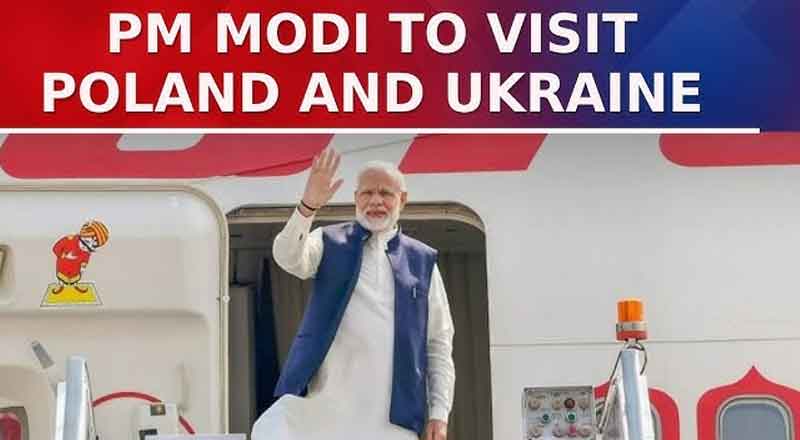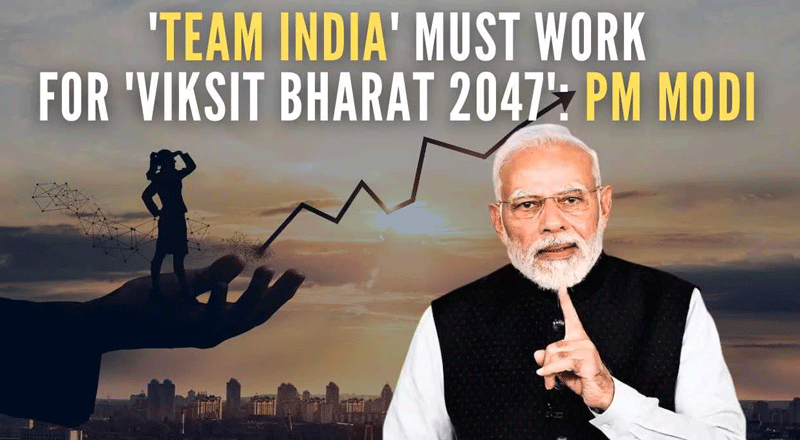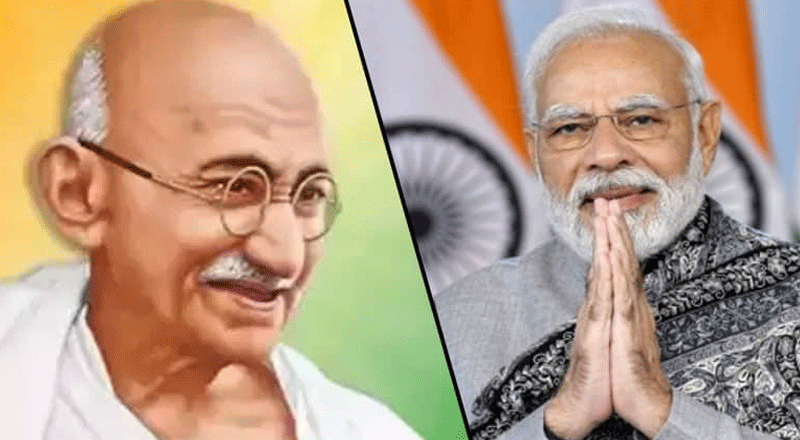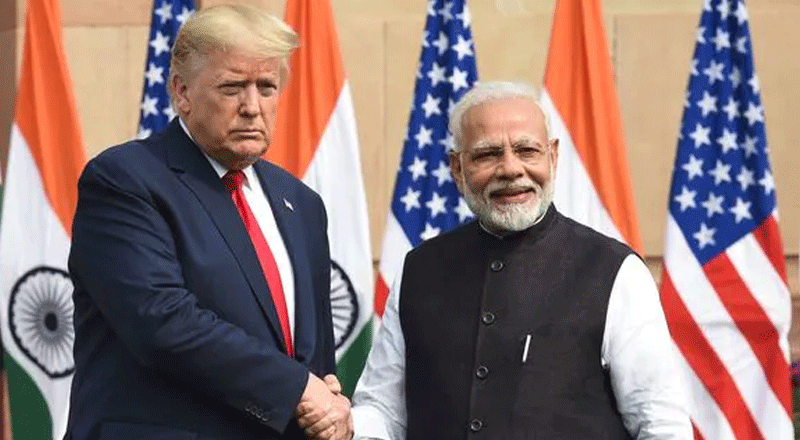Prime Minister Narendra Modi embarked on a significant two-nation tour on Wednesday, marking a historic visit to Poland and Ukraine. The trip underscores India’s growing influence in global diplomacy, as Modi becomes the first Indian Prime Minister to visit Poland in 45 years and the first to set foot in Ukraine since the establishment of diplomatic relations over 30 years ago. The Ministry of External Affairs (MEA) has highlighted the importance of this visit, which aims to enhance bilateral cooperation, address pressing global issues, and strengthen India’s position on the international stage.
Revitalizing India-Poland Relations
Prime Minister Modi’s visit to Poland is particularly noteworthy, as it coincides with the 70th anniversary of diplomatic relations between the two nations. His visit from August 21 to 22 represents a significant opportunity to revitalize these ties, which have deep historical roots. The last visit by an Indian Prime Minister to Poland was in 1979, when Morarji Desai visited Warsaw. This long-awaited visit is expected to bolster economic, cultural, and political relations between the two countries.
During his time in Poland, Modi will engage in high-level discussions with Polish Prime Minister Donald Tusk and President Andrzej Duda. The agenda includes a ceremonial welcome in Warsaw, followed by meetings with business leaders, ecologists, and members of the Indian community. The discussions are expected to cover a broad spectrum of topics, from trade and investment to environmental cooperation, reflecting the diverse and evolving nature of India-Poland relations.
Historical and Cultural Ties
The MEA has emphasized the deep-rooted connections between India and Poland, dating back to World War II when over 6,000 Polish women and children found refuge in the princely states of Jamnagar and Kolhapur. These historical ties were further strengthened during “Operation Ganga” in 2022, when Poland played a crucial role in assisting India with the evacuation of over 4,000 students from Ukraine during the conflict. Today, the Indian community in Poland, estimated at around 25,000, continues to thrive, contributing to the cultural and economic fabric of the country.
The visit also aims to enhance defense cooperation between the two nations. India and Poland have a longstanding defense relationship, with an agreement signed in 2003 that provides for consultations and joint working groups. Recently, India reopened its defense wing at the embassy in Warsaw, signaling a renewed commitment to deepening military ties. Discussions during Modi’s visit are expected to explore opportunities for collaboration in defense technology, joint exercises, and strategic partnerships.
Strengthening India-Ukraine Ties Amid Conflict
After his visit to Poland, Prime Minister Modi will embark on a historic journey to Ukraine, arriving in Kyiv on August 23. This visit is of immense significance, as it marks the first time an Indian Prime Minister will visit Ukraine since the two countries established diplomatic relations. The timing of the visit is critical, as Ukraine is currently engaged in a fresh military offensive against Russian forces. Modi’s visit comes just weeks after his high-profile trip to Moscow, which drew criticism from the United States and some Western allies.
The visit is expected to build on ongoing engagements between India and Ukraine, reflecting India’s independent and substantive ties with both Russia and Ukraine. MEA Secretary (West) Tanmaya Lal has emphasized that these relationships stand on their own merit and are not a “zero-sum game.” Modi has previously met Ukrainian President Volodymyr Zelenskyy on multiple occasions, and their upcoming meeting in Kyiv is expected to focus on strengthening bilateral cooperation in areas such as agriculture, infrastructure, pharmaceuticals, health, education, and defense.
A Message of Peace and Diplomacy
Prime Minister Modi’s visit to Ukraine carries a strong message of peace and diplomacy. Before departing for Europe, Modi expressed his hope for a peaceful resolution to the ongoing conflict in Ukraine. “I look forward to the opportunity to build upon earlier conversations with President Zelenskyy on strengthening bilateral cooperation and share perspectives on the peaceful resolution of the ongoing Ukraine conflict. As a friend and partner, we hope for an early return of peace and stability in the region,” Modi stated.
The visit underscores India’s consistent stance on the Ukraine conflict, which has been to advocate for diplomacy and dialogue as the means to achieve lasting peace. Modi’s approach is rooted in India’s belief that solutions cannot be found on the battlefield and that peace must be negotiated through options acceptable to all parties involved. This position aligns with India’s broader foreign policy, which emphasizes a human-centric approach to conflict resolution.
Balancing Diplomatic Relations
India’s relationship with Ukraine is both continuous and long-standing, and this visit represents a landmark moment in the bilateral ties between the two nations. The Modi-Zelenskyy talks are expected to cover a wide range of issues, including the ongoing conflict and India’s potential role in Ukraine’s reconstruction efforts. MEA Secretary Lal has indicated that India is willing to provide all necessary support, not only in finding a peaceful solution to the conflict but also in contributing to Ukraine’s recovery and rebuilding process.
Modi’s visit to Ukraine is also seen as a strategic move to balance India’s ties with both Russia and Ukraine. While the visit to Moscow drew some criticism, it highlighted India’s independent foreign policy, which seeks to maintain strong relations with all key global players. Modi’s upcoming discussions with Zelenskyy are expected to reinforce India’s position as a neutral and constructive partner in the global efforts to resolve the Ukraine conflict.
India’s Role on the Global Stage
Prime Minister Modi’s historic visit to Poland and Ukraine represents a significant moment in India’s diplomatic efforts on the global stage. By engaging with key European nations at a time of geopolitical tension, Modi is reaffirming India’s commitment to peace, stability, and constructive international relations. The visit is expected to strengthen India’s ties with both Poland and Ukraine, while also reinforcing its role as a key player in global diplomacy.
As India continues to navigate the complex dynamics of international relations, Modi’s visit serves as a reminder of the importance of dialogue, diplomacy, and strategic partnerships in achieving long-term peace and prosperity. Whether through enhancing bilateral ties or contributing to conflict resolution, India’s engagement with Poland and Ukraine reflects its broader vision of a stable and interconnected world.
(With inputs from agencies)





